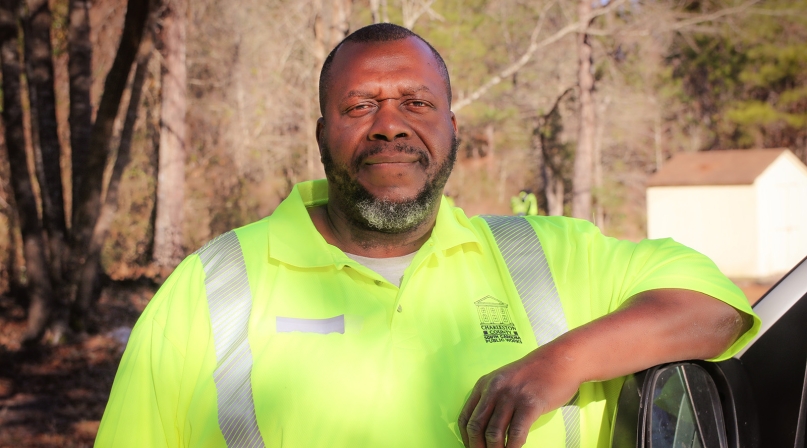Changing the Odds: How Stable Employment Stops Recidivism
Author
Upcoming Events
Related News

Charleston County, S.C. hopes jobs will help reduce #recidivism among ex-convicts
Marty Hamilton is a busy guy. He works two full-time jobs, takes night classes, meets with his probation officer weekly, makes time for his wife and seven children, and on top of all that, continues to check in with the Turning Leaf Project. But being busy doesn’t bother Hamilton.
“It’s a positive way of life,” he said. “People who know me, they’re shaking my hand now. I try to inspire them to be a law-abiding citizen — a working citizen.” Most of Hamilton’s life has not been spent as a law-abiding citizen. He’s been to prison seven different times and spent two stints in the Charleston County S.C. Detention Center. After his last incarceration, Hamilton’s probation officer referred him to the Turning Leaf Project, an organization that uses proven practices to reduce recidivism.
“They teach you life skills, you know, better decision [making] skills, work skills and education skills,” he said.
Through connections with Turning Leaf, Hamilton started working at Palmetto Parking as an attendant. After three months of involvement with the program, which included rehabilitation classes, Charleston County’s Public Works Department hired Hamilton to work ditch maintenance.
“I really like working [for the county],” Hamilton said. “I really want to, my plan and goal is to work my way up the ladder. I want to learn the vac truck —and this is where I want to retire from if I’m going to be honest with you.”
Charleston County began working with programs like the Turning Leaf Project and SC STRONG in 2016. The Public Works Department currently employs two ex-convicts working to avoid recidivism. Jim Armstrong, deputy county administrator for transportation-public works, became an advocate for programs like these after working with some of their participants.
“After learning about these organizations, I realized that what you have is a bunch of gentlemen that understand that they have gone awry and that they need to get their life back in order,” Armstrong said. “To do that, they need a little help.”
Charleston County, along with both the cities of Charleston and North Charleston, helps these programs by providing employment opportunities to those who are serious about ditching a life of crime.
South Carolina faces a crisis of high incarceration rates, the eighth highest in the nation. According to the South Carolina Department of Corrections, just over 8,000 men were released from incarceration in 2017. All of these individuals are subject to recidivism, and for those without an outlet for rehabilitation, odds are some offenders will face re-incarceration within three years.
The Turning Leaf Project focuses on changing those odds, and a key component is a stable employer. Marty Hamilton wakes up every morning with the county on his mind, and he says that helps him stay out of trouble. He now encourages those he sees headed toward a life of crime to consider working for the county.
“[Working for the county], makes me a better family person, too,” he said. “You know, my kids love to see me come home with my steel-toed boots on. My whole attitude and outlook on life has changed since I started working for the county…You work around good people and that brings me to continue wanting to be a good person.”
Hamilton’s dedication to his job has kept him out of trouble since March of 2017.
By providing employment opportunities to ex-convicts, the county hopes to reduce the rate of recidivism as a way of bettering its community.
Attachments
Related News

County officials moonlight in search and rescue roles
For some county officials, participating in search and rescue operations is another way to serve their communities, and make it safer for people to enjoy natural recreation resources.

SUPPORT Reauthorization Act of 2025: What it means for counties
On December 1, the bipartisan SUPPORT for Patients and Communities (SUPPORT) Reauthorization Act of 2025 (H.R. 2483) was signed into law. The reauthorization renews vital federal funding for programs that seek to prevent opioid overdoses and expand treatment and recovery options.

DHS releases FY 2026 funding opportunities for World Cup and Counter-UAS grants
The U.S. Department of Homeland Security (DHS) and the Federal Emergency Management Agency (FEMA) have released the FY 2026 Notices of Funding Opportunity (NOFOs) for two major new homeland security grant programs: the FIFA World Cup Grant Program and the Counter-Unmanned Aircraft Systems (C-UAS) Grant Program.